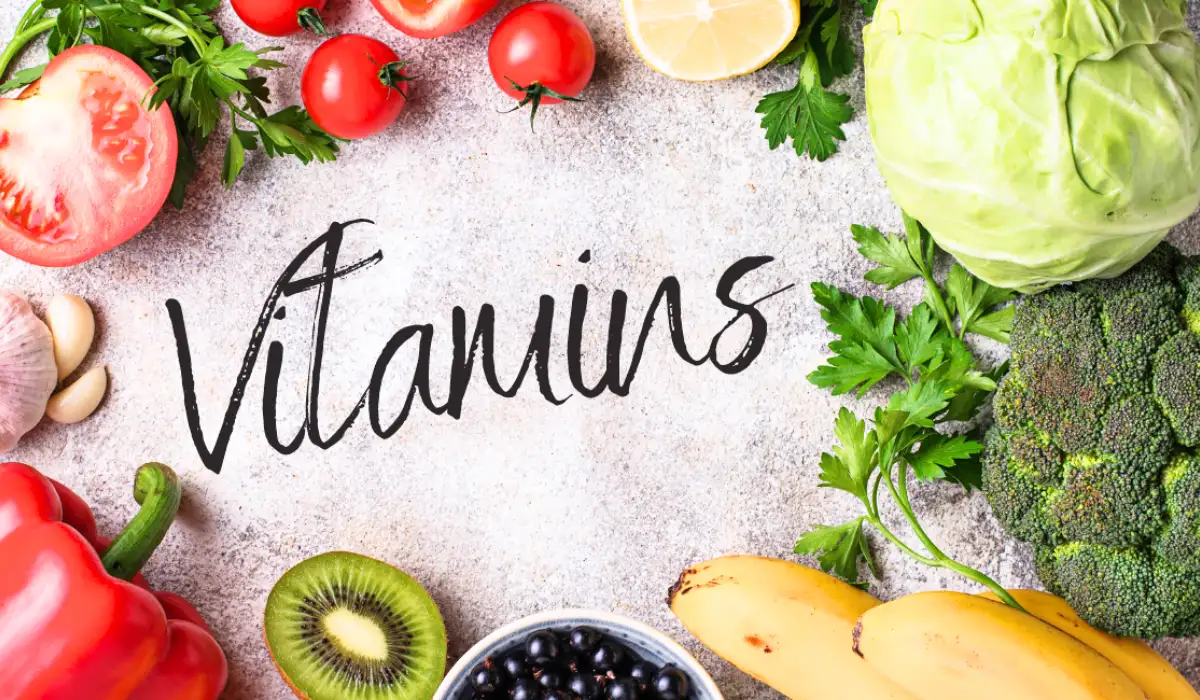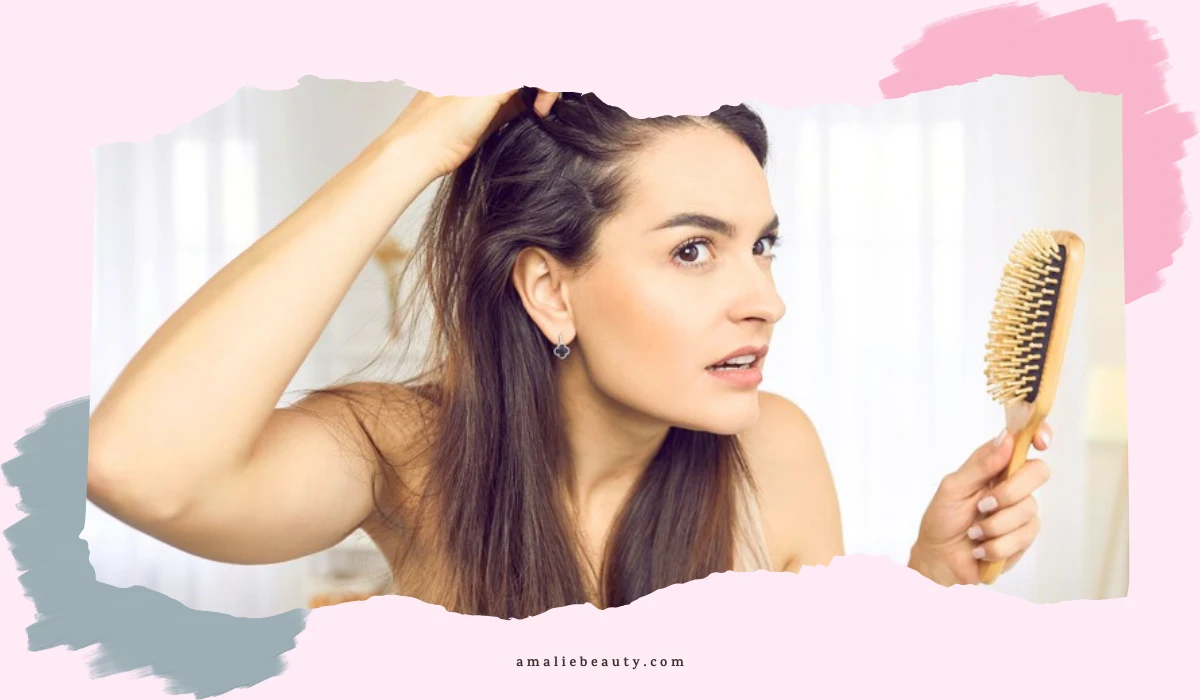Hair loss is difficult to bear morally, to better manage it and try to counter it, the first step is to understand its causes. in the majority of cases, the cause is easier to understand than it seems, because it is on the plates! Nutrient deficiencies, that is to say, the lack of vitamins, minerals, trace elements, and amino acids, are often the cause of gray hair.
When the quality of menus becomes poorer, hair health takes a hit. Resulting in loss of vitality, fatigue, blemished skin, and hair loss, which is one of the first visible symptoms of nutrient deficiencies.
Detecting vitamin deficiencies

Apart from vitamin K and D, our body is not capable of producing all the nutrients it needs on its own. Some are also more prone to deficiency than others, this is the case for B group vitamins, vitamins C and D, zinc, magnesium, and selenium, each more important than the other.
It is there for necessary to provide our body with everything it needs through food, with varied, balanced, and healthy menus. Taking blood tests from time to time is the best way to ensure that your nutrients are optimal. and if you already experience certain typical symptoms of a nutrient deficiency (increased fatigue, digestion problems, muscle cramps, vision problems, dizziness, hair loss, etc.), Don’t wait to consult your doctor to take stock.
Best vitamins for Healthy hair
The list of nutrients essential for the proper functioning of the body as a whole is long. So rather than covering everything, let us focus on the vitamins and other minerals that are most important for the health of your hair.
1. Vitamin D
Vitamin D deficiency is one of the most common, affecting almost 70% of the population! Lack of Vitamin D weakens the hair follicle: hair is dull, falls out, and no longer grows back. This deficiency also causes increased production of sebum (oily hair).
Where to find it?
Mainly in fatty fish: salmon, trout, salmon trout, sardines, but also in egg yolk, butter or cheese
2. Vitamin B
The eight vitamins of the B group are often nicknamed the hair vitamins because they play an important role in the growth and growth of hair:
- Vitamin B2 is involved in the production of keratin, the protein that makes up hair.
- Vitamin B3 stimulates blood circulation in the scalp
- Vitamin B5 participates in the regeneration of the hair fiber
- Vitamin B12 plays a crucial role in hair growth by stimulating cell division in the hair follicle
Where to find it?
In brewer’s yeast, nuts, organ meats, dried or green vegetables, fruits and dairy products.
2. Vitamin E
Vitamin E has an antioxidant effect and helps fight cellular aging, which accelerates hair loss. It is good for everything because it promotes the beauty of the skin, hair, and nails.
Where to find it?
Oils and oil seed products are particularly rich in vitamin E: almonds, walnuts, and hazelnuts. Broccoli and tomatoes also contain it.
3. Vitamin C
Vitamin C is essential for hair, because it participates in the production of collagen, strengthens the hair fibers, and fights dryness of the scalp.
Where to find it?
In certain fresh fruits and vegetables: kiwi, Orange, strawberry, grapefruit, blackcurrant, pineapple, lemon. Be careful, it does not hold up well to cooking.
Also Read: 5 Best Vitamins For Blood Circulation In Legs
Minerals and trace elements
Nutrients such as zinc, magnesium, silicon, or selenium have invaluable effects as antioxidants or to strengthen the immune response, wound healing, or fertility. They also play a crucial role in hair health.
Ensuring your body has the necessary quantity of vitamins
To promote good health, your diet must be varied! Also, favor fresh and minimally processed foods to avoid additives and other harmful substances.
Given the number of vitamins, minerals, and Trace elements that the body and hair need, it may however be insufficient. If you have experienced hair loss, the key is to react quickly to limit the damage, strengthen your hair, and boost its regrowth.
Hair loss superfoods and vitamins for hair
A healthy and varied diet is essential to maintain good hair health. Here are some ingredients considered superfoods to prevent hair loss. Health-promoting foods are known as superfoods, most especially when the foods are rich in antioxidants and health-promoting content. The most commonly recommended superfoods for hair growth are:
Eggs, salmon, berries, spinach, nuts. These foods are highly rich in minerals and vitamins C, E, iron, and Omega-3 fatty acids.
Spinach, for example, is rich in iron, vitamin C, and beta-carotene, all of which are important nutrients for hair health. Iron plays a vital role in red blood production and helps to carry oxygen to the hair follicles. Vitamin C helps stimulate the production of collagen, which is important for hair growth, why beta-carotene is converted to vitamin A in the body, which is crucial for hair growth and health
Salmon and fatty fish, are an excellent source of omega-3 and promote hydration of the scalp and hair. Omega-3 fatty acids help reduce inflammation and maintain scalp hydration, while vitamin D helps regulate hair growth. Protein is also essential for hair health because it helps strengthen hair follicles
Oats contain all the micronutrients necessary for good hair health.it is rich in zinc and iron, B vitamins, and protein. These nutrients help nourish the scalp, stimulate hair growth, and maintain healthy hair follicles. Additionally, the high soluble fiber content of oats can help maintain a healthy digestive system, which also promotes hair health.
Egg on the other hand is essential, it should be included in your hair routine. It can easily be incorporated into different diets which in turn benefit hair health immensely
Iron plays an important role in hair health. However, it is also a common deficiency. Pregnant women, the elderly, vegans, and vegetarians are at increased risk of iron deficiency. One of the consequences of this deficiency is hair loss. Iron plays an essential role in the formation of blood and hair as a high blood requirement, if it does not receive enough it begins to fall out.
Final Thoughts
To summarize, understanding the role of vitamins in maintaining healthy hair is critical for avoiding hair loss. While several vitamins help to maintain overall hair health, deficiencies in vitamin D, vitamin B12, iron, and biotin are frequently related to hair loss. If you are experiencing hair loss, speak with a healthcare expert to determine any potential inadequacies and discuss appropriate treatment choices.
References:
- Bronsnick T, Murzaku EC, Rao BK. Diet in dermatology: Part I. Atopic dermatitis, acne, and nonmelanoma skin cancer. J Am Acad Dermatol. 2014;71(6):1039e1–e12. [PubMed]
- Shapiro J. Clinical practice Hair loss in women. N Engl J Med. 2007;357(16):1620–30

